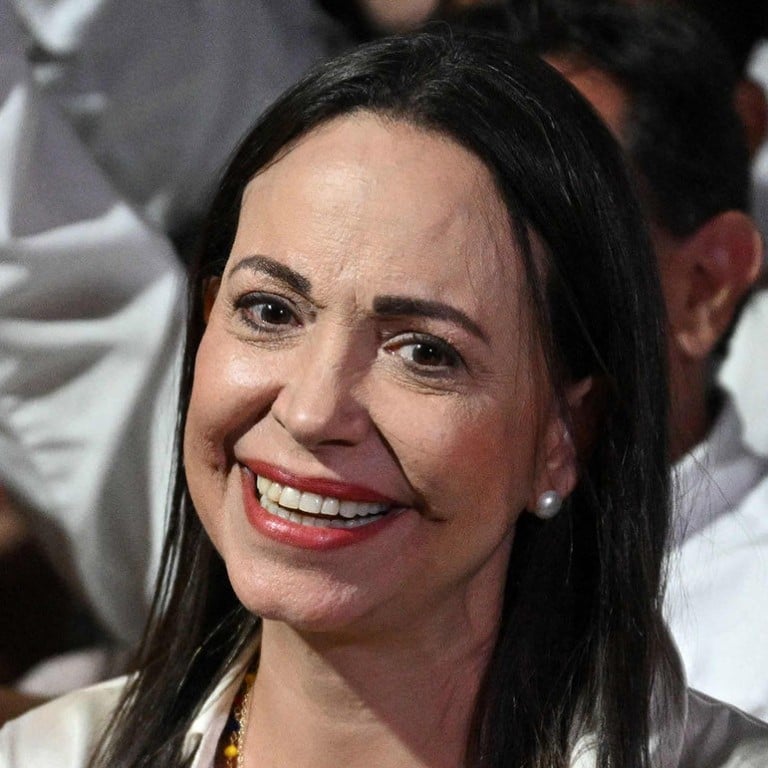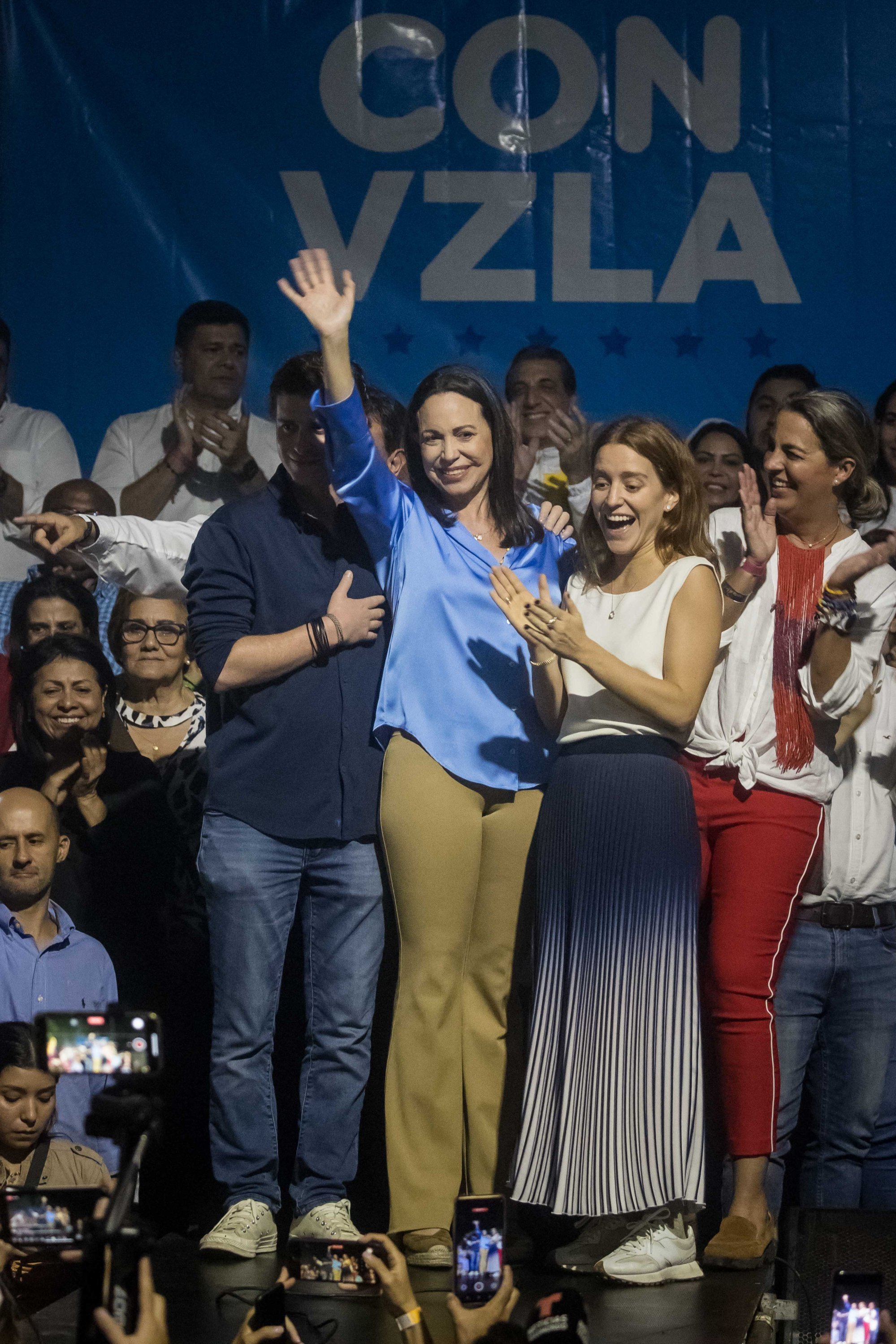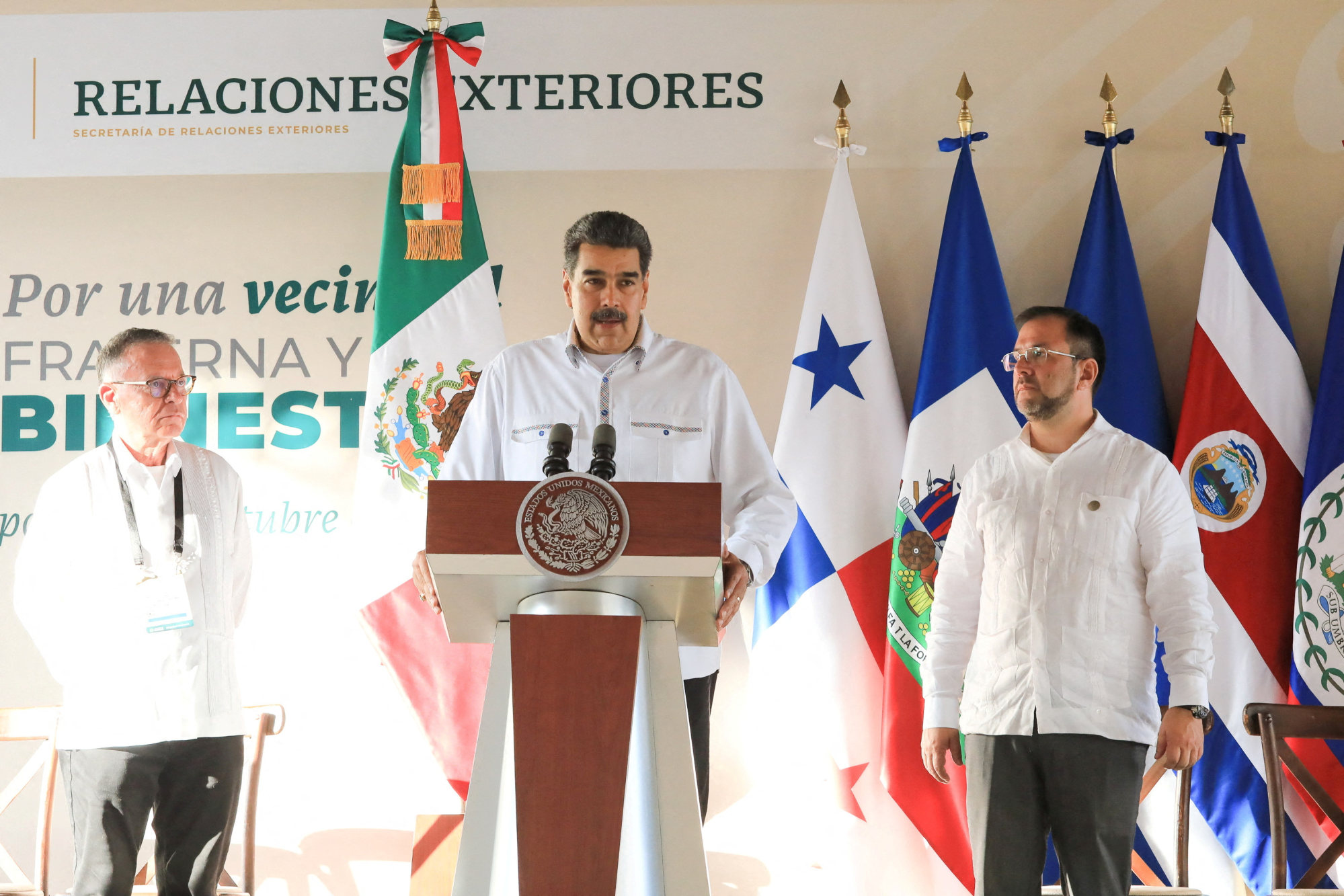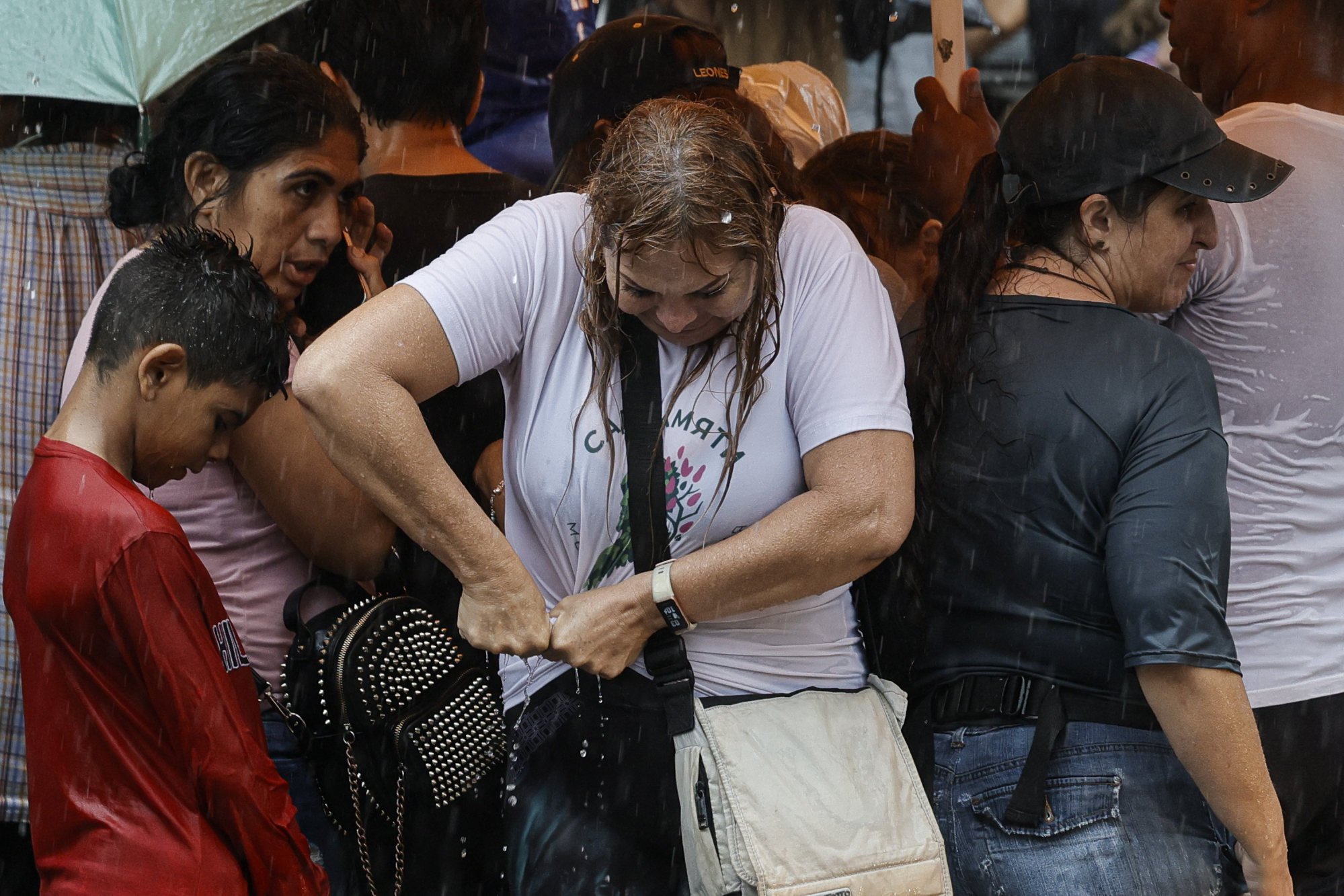
Leading in early results, Machado claims win in Venezuelan presidential primary vote
- Government critic Maria Corina Machado declared herself the winner early on Monday after early results showing her ahead with more than 90 per cent of support
- President Maduro’s allies had ridiculed the primary and hours after their foe claimed victory, state TV presented the contest as an ‘electoral farce’
Venezuelans presented irrefutable evidence of their desire for an alternative to the decade-long, crisis-ridden presidency of Nicolas Maduro, thronging voting centres on Sunday set up for a primary election organised by the country’s opposition and showing an overwhelming support for long-time government critic Maria Corina Machado.
Machado declared herself the winner early on Monday after the independent National Primary Commission, which organised the primary, released early returns showing her ahead with more than 90 per cent of support.
Maduro’s allies, who had ridiculed and minimised the primary, remained conspicuously quiet throughout election day, but hours after their foe claimed victory, state television presented the contest as an “electoral farce”.
But that assessment is far from reality. Venezuelans in and outside their homeland gathered at voting centres, braved bad weather and waited in for hours to be able to vote.
They downloaded apps to circumvent internet censorship and helped each other find their voting centre.

In neighbourhoods across the capital, Caracas, including some low-income areas once considered strongholds of the ruling party, voters stayed in line despite a rainstorm that left them soaking wet.
The National Primary Commission, which organised the primary, blamed internet censorship for only being able to release one set of early results long after polling stations had closed. The organisers said that in the first 601,110 ballots counted, about 93 per cent picked Machado, who had entered the vote as a strong front-runner.
Organisers gave no indication of how many people cast ballots in all. They were expected to release additional results on Monday afternoon.
“Today, very powerful forces have been unleashed,” Machado told supporters gathered outside her campaign headquarters in Caracas. “Today, we have shown ourselves what we are capable of doing in the face of all the obstacles, in the face of all the abuses.”
US eases Venezuela oil, gas sanctions after ‘democratic developments’
Still, what Venezuelans saw as a monumental exercise in democracy could still prove futile, if Maduro’s government wishes.
While the administration agreed in principle to let the opposition choose its candidate for the 2024 presidential election, it also has already barred Machado from running for office. Maduro’s government has in the past bent the law, retaliated against opponents and breached agreements as it sees fit.
Caracas resident Stephanie Aguilar, 34, cried while she waited to vote. She described the primary as the only “salvation” for her country, her daughter and son, and the millions of Venezuelans who decided they had to emigrate because of the nation’s economic and political turmoil.
“We want a better country, a free country, for my children … who have grown up in this government,” Aguilar, a housewife, said as she wiped tears from her face.

Venezuelans typically vote at public schools, but the independent commission that oversaw the primary opted to use homes, churches, private schools and other facilities after electoral authorities did not respond to requests for help in a timely manner.
State television on Monday falsely accused the opposition’s primary of not having “witnesses”.
It also tried to discredit the contest for a lack of electoral “observers”, but it failed to mention that some elections run by the National Electoral Council have also taken place without independent oversight.
Jesús María Casal, head of the National Primary Commission, told reporters that once the vote counting process began Sunday, organisers detected that the “server that functioned as a transmission channel was blocked, preventing us from completing this process as scheduled”.
The London-based internet monitoring firm NetBlocks tweeted metrics showing “a disruption to internet connectivity in #Venezuela with high impact to Caracas”. It added that a state-owned internet service provider claimed “an issue with its energy backup system”.
David Smilde, an expert on Venezuelan politics at Tulane University in New Orleans, Louisiana, in the United States, said the primary was a “significant achievement” for several reasons, including forcing political leaders and parties within the opposition “to reach out and speak to the people”.
“And it has generated considerable enthusiasm and mobilisation in a population that has been sceptical of the opposition leadership of late,” he said.

Machado, a proponent of free-market economic policies, is a long-time critic of the governing United Socialist Party of Venezuela. She maintained a somewhat low profile for years but dominated the primary campaign by connecting with the same voters she consistently urged to boycott previous elections.
The presidential election is expected to be scheduled for the second half of 2024. Maduro is looking to extend his presidency until 2030, which would surpass the time that Hugo Chavez, his mentor, governed and established his self-described socialist policies.
Maduro and an opposition faction backed by the US government last week agreed to work together on basic conditions for the presidential contest. That prompted the government to release six political prisoners and the Biden administration to lift key economic sanctions.
China will train Venezuelans to join Beijing’s moon project, says Maduro
As part of the agreement, Maduro’s administration and the opposition are supposed to “recognise and respect the right of each political actor to select” a presidential candidate freely.
If organisers declare Machado the primary’s winner, the focus will shift to Maduro to see if the government reverses its ban on her seeking public office.
In June, the government issued an administrative decision prohibiting Machado from running, alleging fraud and tax violations and accusing her of seeking the economic sanctions the US imposed on Venezuela in the last decade.
The US, holding up the threat of renewed sanctions, has given Venezuela until the end of November to establish a process for reinstating all candidates expeditiously.
“People know that we have no guarantees that the winner of this election will be able to advance to the presidential election, but we keep trying,” said Maria de los Ángeles Leon, 31, coordinator of Mexico City’s voting site.

